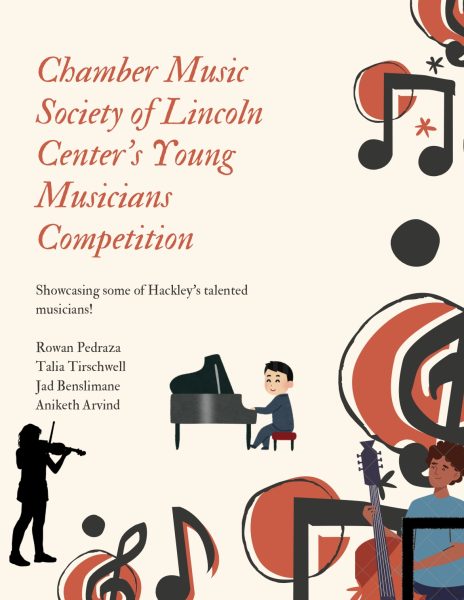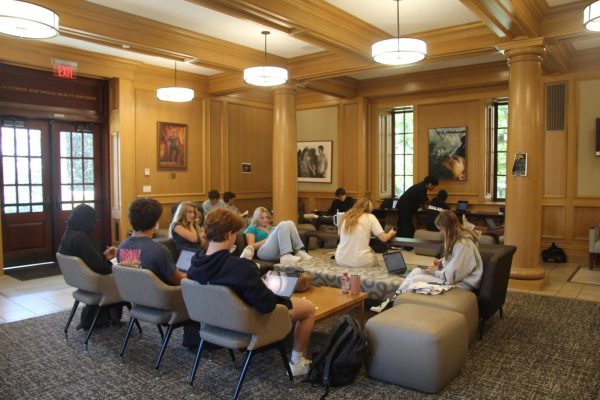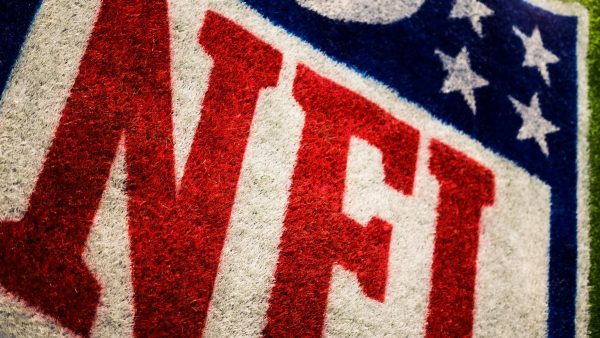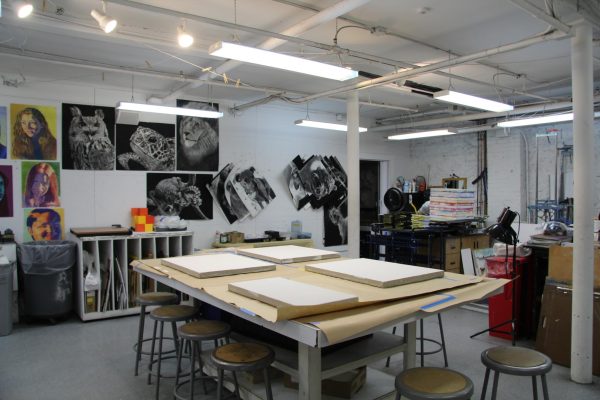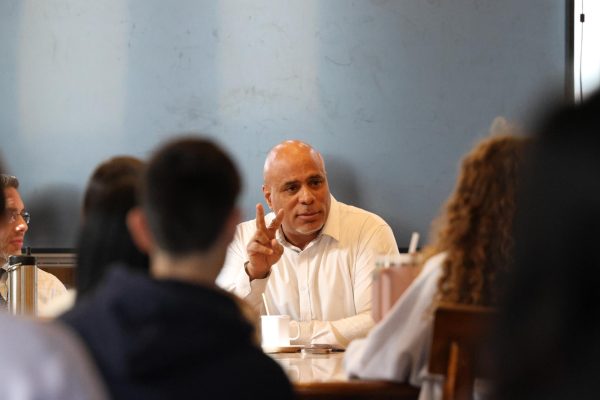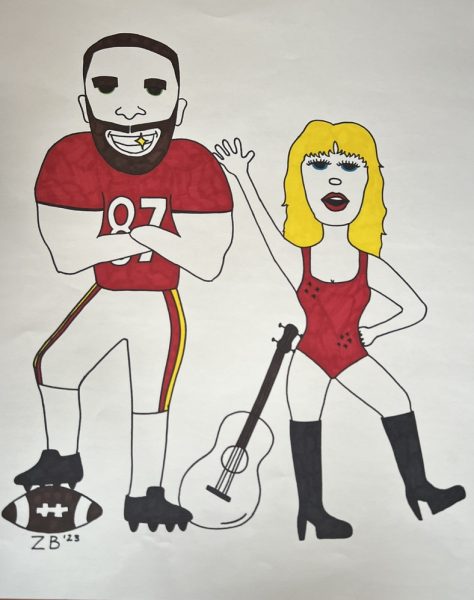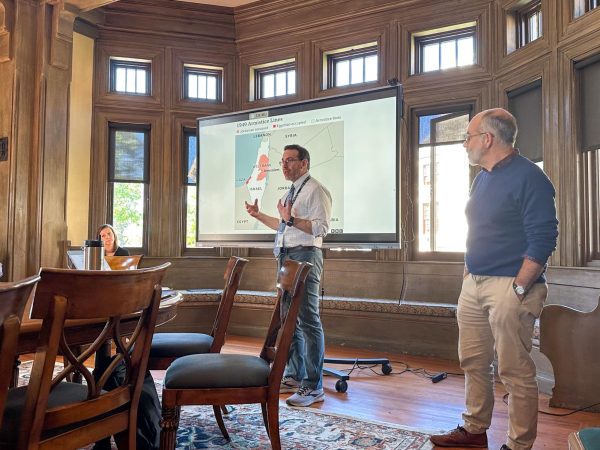News Analysis: How the pandemics of 1918 and 2020 affected student life on campus
Hackley was 19 years old in 1918 when the last global pandemic interrupted life on the hilltop. The first world war was coming to a close and a new strain of influenza, misattributed to Spain and still often referred to as the “Spanish flu,” began in 1918 and lasted until 1920.
The 1918 influenza pandemic was a deadly pandemic that infected about 500 million people by 1920. It was caused by an H1N1 virus, whose vaccine is now included in the annual flu shot. The highest estimated death toll amounts to 100 million people after the four successive waves of the virus. To maintain high morale for the pending war at the time, however, many newspapers around the world censored news of the virus.
Hackley records from the past such as yearbooks, literary magazines, and photos from the time show little to no evidence of a pandemic. At the time, the total school enrollment was 50, and the student body was all male. There were 8 students in the class of 1918.
When the 1918 flu started to cause mass destruction, volunteers stepped in to shelter orphans, dig graves, and hand out food. A century later, as the 2020 COVID virus spread, volunteers offered to aid in contact tracing, testing, and sheltering.
The Hackley was a literary magazine published monthly in the spring that documented news and student literary works in 1918, and The Annual was the school’s yearbook. These two sources and their documentation of 1918 through 1920 show few traces of illness that could have been the flu. From these publications, it is unclear whether all students returned each year or if any chose to stay home due to war or the pandemic. From February through the last issue of The Hackley in June of 1918, there are only short reports of “chickenpox and pink eye” (21).
Some of the first reports of the virus being mismanaged in order to save face for the war come from Philadelphia, where the flu spread throughout a parade for the troops, infecting police, school building workers, and switchboard operators. Tents and plexiglass may not have been the norm in 1918, but Hackley understood the value of keeping mass gatherings to a minimum. Sports practices were canceled and The Annual tells of similar indignation at not being able to play sports games and being behind on practices. Additionally, all students at the time lived on campus, allowing the school to stay open. Similar to today, keeping New York City schools open was an ongoing public health issue and point of debate.
“We feel sure that if it had not been for the influenza and consequent lack of games, we could have distinguished ourselves even more than we did in the fall of 1917.” The Annual said of their lack of sports games in 1919 compared to their successes in 1917.
In Westchester during 1918, houses of worship, movie theaters, and schools were closed, yet Hackley stayed open. Hospitals report being overwhelmed, with 6 out of 9 of the nurses at the local hospital being sick at one point. Local ads incentivized joining the Red Cross in order to produce masks for the troops and local scam artists looked to make money by selling fraudulent, unscientific remedies for the flu.
The Hackley reported that colleges like Dartmouth shut students out of fraternity houses. Others locked down and didn’t let any outsiders near students. Cities like New York City did well against the flu from previous experience with campaigns against tuberculosis and campaigns against spitting.
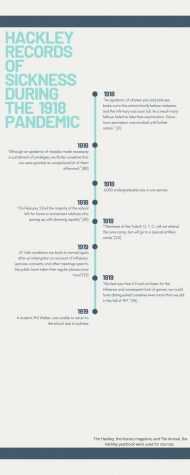
Timeline of The Hackley:
February 1918: “an epidemic of chickenpox and pink eye broke out in the school shortly before midyears, and the infirmary was soon full. As a result, many fellows failed to take their examinations. Down-town permission was revoked until further notice.” (21)
February 1918: “According to the Harvard University War Records Office, between 5,000 and 6,000 graduates and undergraduates are in war service” (19)
March 1918: “On February 22nd the majority of the school left for home or convenient relatives who sprang up with alarming rapidity” (28)
April 1918: “Due to the unfortunate illness in the school, Mr. Battis has been unable to come over from the Lower School, and as a result, there has been no practice for either the Mandolin or the Glee Club.” (28)
June 1918: “Members of the Yale R. O. T. C. will not attend the June camp, but will go to a special artillery camp.”(24)
June 1918: “Beginning next fall no students will live in the fraternity houses at Dartmouth. The trustees voted to establish this rule at a recent meeting and will reimburse the societies for any loss they may sustain.” (34)
March 1919: “At Yale, conditions are back to normal again after an interruption on account of influenza. Lectures, concerts, and other meetings open to the public have taken their regular places once more. (23)
March 1920: There is a list of alumni lost in the war-8. (11)
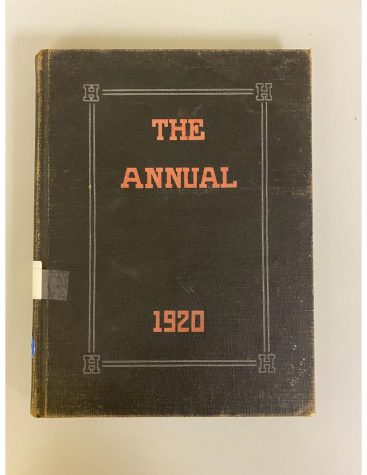 The Annual, the yearbook Timeline:
The Annual, the yearbook Timeline:
1918 The History of the Year: “Although an epidemic of measles made necessary a curtailment of privileges, we flatter ourselves that we were granted an exceptional lot of them afterward.” (80)
“Of course we couldn’t get through one winter without some epidemic, and chickenpox gave many fellows a good time, for, although they were isolated in the infirmary, there were enough of them to amuse one another. Pink eye also became popular just before midyears, and for one fellow, on the very day before. However, everything came out all right, and all were happy and relieved when they ended their homeward way on March 20” (81)
1919 The History of the Year: “We feel sure that if it had not been for the influenza and consequent lack of games, we could have distinguished ourselves even more than we did in the fall of 1917. In the drill, we all took an especial interest during the fall. This was due to the influence of the war, the new uniforms, and the novelty of it all. We had closed and extended order, bayonet practice, advanced guard, besides marching in a few parades in Tarrytown” (96)
“‘Phil’ Walker was unable to return because of sickness, “Teddy” McKee couldn’t see another year of Latin with “blitz” under the desk and entered a military school in Chicago, Thomas went to Andover, “Hoagan” took a position in a bank and “Bal,” hearing the call of college and the big world, came back a Senior.

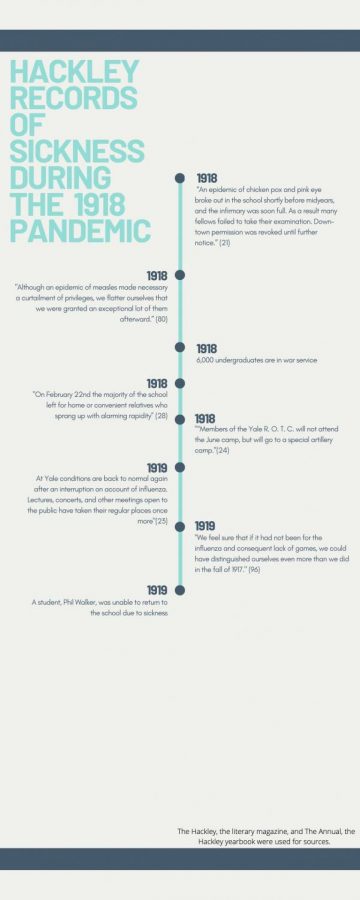
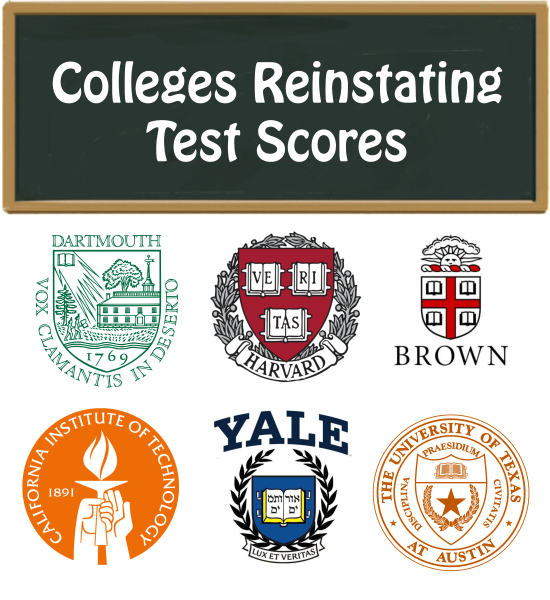
![Although the affect of COVID-19 has been on a decline with less cases and deaths allowing most of us to remain mask free, people on the Hilltop are still choosing to mask up. Personal health concerns as well as helping an elderly neighbor are reasons as to why middle school science teacher Emma Olsen still wears a mask years after the COVID-19 pandemic began. Since I am helping take care of him, you know I go over to work with his dogs, that kind of thing; I dont want to bring [the virus] home to him, Ms. Olsen said.](https://hsdial.org/wp-content/uploads/2024/03/IMG_1713-450x600.jpg)
